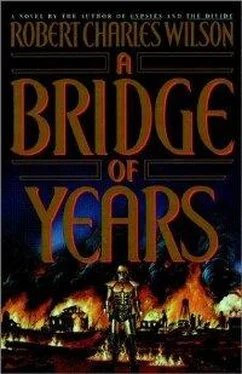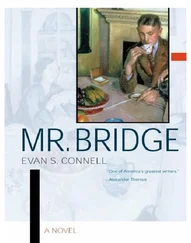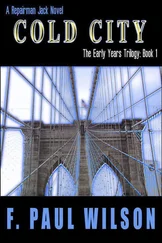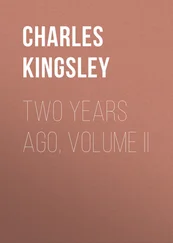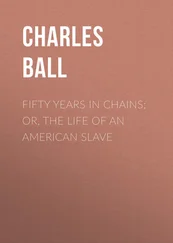Time and words. Seasons. That January, Billy was caught in a snowstorm that slowed the buses to a crawl. Tired and cold, he decided to check into a hotel rather than walk the distance home. He found an inexpensive boarding hotel and asked the desk clerk for a room with a slut; the clerk showed him a strange smile and said he would have to arrange that himself—he recommended a bar a few blocks away. Billy disguised his confusion and checked in anyway, then realized that in 1953 the word “slut” must have some other meaning —he didn’t need a heated bed; the entire room, the entire hotel was heated. Probably every room in the city was heated, even the vast public spaces of banks and the cavernous lobbies of skyscrapers, all through the bitter winter. He had a hard time grasping this simple fact; when he did, the sheer arrogant monstrosity of it left him dazed and blinking.
Asleep in the snowbound hotel, Billy dreamed of all that heat … a hundred summers’ worth, bubbling up from this city and a dozen cities like it, hovering for decades in invisible cloudbanks and then descending all at once in a final obliteration of the seasons.
He dreamed about Ohio, about a farm in the desert there.
His need for the armor was quiet at first, a barely discernible tickle of desire, something he could ignore—for a time.
The armor, with its power off and its tensor fields collapsed, lay in the box Billy had found for it like yardcloth from some fairy-tale haberdashery. It looked like spun gold, though of course it wasn’t really gold; it was woven of complex polymolecules grown in the big East Coast armaments collectives. Parts of it were electronic and parts of it were vaguely alive.
The Infantry doctors had told Billy he’d die without his armor—that he would go mad without the essential neurochemicals generated in the elytra. Billy was frankly aware that without the armor he was slow, languorous, sleepy, and sexless. But he endured that—in a way, the condition was even sedating. For six months he moved through the city with his eyelids heavy and his mouth turned up in an empty narcotic smile.
Then came the Need.
At first it was only a tingling dissatisfaction, pins and needles in his fingers and toes. Billy ignored it and went about his business.
Then the tingling became an itch, the itch a fiery burning. The skin of his face felt drawn tight, as if it had been clamped and sutured to his hairline. He woke up in the bitter late winter of that year with the disquieting sensation that he could feel the gaps and contours of his own skull under the skin, the grinding of bones and ligaments like dry chalk inside him. He was thirsty all the time, but tap water tasted sour in his mouth and burned his throat when he swallowed. He felt sudden blooms of panic, irrational fears: of heights, open spaces, disease.
He knew what this was all about.
The armor, Billy thought.
The sleek and deadly armor.
He wanted it, or it wanted him … Billy was inclined to the latter belief.
This discomfort, this pain, this vertigo: it was the sound of the armor calling to him from its box under the bed.
Billy resisted it.
He was afraid of what the armor might want.
Well, he knew what it wanted. It wanted motion, light, heat. It wanted to be brought alive. It wanted to be the creature that Billy was when he wore it, a powerful nightmare-Billy to be summoned and let loose.
He dreamed he was a dog chasing rabbits through a field of wheat by the bone-white light of a harvest moon. He dreamed of cracking the rabbit’s spine with his sharp teeth and of the gush of warm rabbit blood on his muzzle.
He dreamed of the armor. The armor was a presence in all his dreams now, the flash of it like something dazzling at the periphery of his vision. He couldn’t bear to look directly at it;
like the sun, it might blind him—but, like the sun, it was always there.
Some nights, sweating and shivering, he dreamed of Ohio.
In the main, Billy’s childhood memories were sunny. He had grown up in a farm town called Oasis, one of the soil reclamation collectives that had sprung up along the diversion canals drawing water south from the Great Lakes. Founded in a mood of optimism during the Dry Fifties, operated by a consortium of food distributors out of Detroit, the town had lost some of its civic spirit in the hard decades after. But if you grew up there, you didn’t notice. For Billy, it was only a place.
He carried a few vivid memories of that time. He remembered the sky, a hazy blue vastness that had seemed as big as time itself. He remembered the miracle of water, water gushing up from sprinkler heads embedded in the dust-dikes that ran in lazy whorls through the fields—water raining down over a thousand acres of new green leaves. The town grew wheat and cabbage and kale and alfalfa and a patchwork of minor crops. Twice, Billy had been allowed to ride out on the big tending machines; and it made him proud and giddy to sit beside his father in the crow’s-nest seat, emperor of all this fragrant green foliage and dusty blue sky. He remembered one scorching summer when a work battalion from AgService came to install what they called “UV screens”—huge banners of some nearly invisible film, tethered on poles and anchored with fat steel cables. For a few days it was cooler in the fields, and the clinic reported exposure trauma down a percentile. But then—pretty much as Billy’s father had predicted—a hot wind came blowing from the west and the UV film broke free of its tethers. It balled up and tangled in the crops like so much cellophane discarded by a thoughtless giant. Acres of winter wheat were bent and broken. Nathan, surveying the battered fields, had startled Billy by falling on his knees.
Billy remembered Nathan as a large man—large, bearded, generous, often quiet, and deeply unhappy. His father always followed the news on the big screen in the civic center; and Billy gleaned that it was Nathan who received the other news, microwave databursts not sanctioned by the federal information services—news, especially, on the movement of conscription battalions across the Midwest.
Every two or three years the recruiters swept into Oasis. Nathan said they were like the locusts in the Bible, a plague. They would bunk in the labor barracks, stay a few days, maybe leave some of the more impressionable young girls with a new baby inside them; and when they rode away in their huge hovertrucks they would take a few draftees—boys barely old enough to shave, mainly.
Nathan and the town council usually had some warning when the battalions were coming, time enough to tamper with the town’s birth records—to delete or alter certain documents. The likeliest young recruits would be hidden away in a supply cellar under the machine shed and the women would sneak them food. The battalions complained about the slim pickings, and sometimes they ran crude tamper-check routines on the civic computers … but if you got them drunk enough, Nathan said, they’d leave happy.
But if they came without warning—if they had destroyed the pirate relay towers on their way west—then they took what they wanted.
Billy remembered a summer when the news from the Storm Zone was very bad, tremendous loss of life all through the Caribbean and the occupation forces scattered. That summer, the Infantry came without warning. They arrived in a phalanx of black hovercraft, raising a cloud of dust that must have reddened sunsets all the way to Sandusky. Billy remembered his father’s face when he climbed an embankment and saw that gray-black line approaching from the west —dismay as substantial as a weight on his shoulders.
He turned to Billy and said, “Go to the machine shed. Hurry.”
Читать дальше
